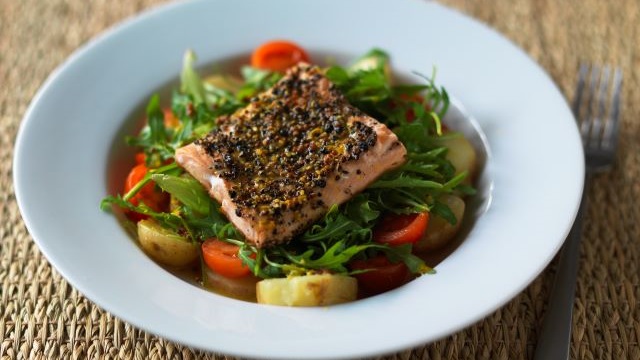@Theo, most of your response below to me is fair, reasonable and clearly you are doing your best to be sensible. I genuinely hope you do see a good difference and that you have successfully moved below the prediabetic zone.
My admittedly strong comments were rather more at your Nurse and advisors indicating that certain higher carb foods were OK when, in my non-qualified opinion this is not really so.
Well thanks for that information P. I would like to know why it is that on the diabetes Uk website it says oat are fine as are weetabix. In moderation or course. This is because of them being a high fibre cereal.
As
@Leadinglights has effectively said Diabetes UK is trying to walk a tightrope between NHS guidance that is in places very out of date and yet helping us with information.
I do weigh the oats and have 40 grams which according to the label is 24 grams of carbs made with half water and half semi skimmed milk.
Well done, weighing is essential portion control and carb counting is a great way of keeping yourself aware of how many carbs are consumed when you eat porridge or any food. But that doesn't change my view that your oats are 60%, ie 60 gms of carbs per 100 gms of oats. Without someone saying from the outset porridge
CAN be OK for some people, but oats are very high carb and only modest quantities could be considered sensible for any person needing to control their total carb intake - then such a caveat would be more appropriate. But the message you passed on was that your Nurse said Weetabix (69% carbs) and Porridge (60%) are OK; if there was any caveat by your Nurse or whoever, you didn't include that caveat. Anyone really new to a pre diabetes alert or a formal diagnosis can only take on board a wrong perception from reading this thread.
Personally the difference between full fat milk and semi-skinned is so tiny, I wouldn't try to quantify that unless I was constantly drinking it by the litre (and of course the semi-skimmed milk has a higher carb content than full fat milk anyway).
I have cut down on potato and thanks to Martin A on this forum substitute it with celeriac. No cakes , biscuits, Pasta or rice .
Again thanks to Martin have cauliflower rice instead. No sweets or chocolate, fruit juice, even make my own soup .
Again absolutely great to read about all these adjustments in your diet and lifestyle. Simply commendable.
The nurse did say to have only wholemeal bread occasionally which I do haven’t touched white bread or any of the above mentioned since January.
But I would take issue with the advice from your Nurse about wholemeal bread. On a like for like basis, wholemeal and white generally have the same carb value. Wholemeal bread is invariably nutritionally better than plain white bread, because it can be less processed, particularly some of the more expensive specialist brown breads. Also wholemeal products tend to digest more slowly which can give a T2 a better chance of their body managing wholemeal breads. However these differences are small. Bread does vary from different manufactuers; many breads are in the region of 40 - 50+% carbs and variation per slice is more about the thickness of a slice and the height/width of a loaf. One needs to check with a magnifying glass the nutrition details.
However, there are a few bread makes/ types that are definitely lower carb % and your Nurse would have been better advising you to consider an example or 2 of such low carb breads. Jason's make a number of different types of bread. Most are 45-55% carbs, like so many other breads. But Jason's produce a Sourdough Seeded Protein bread which is 22% carbs, less than half the carb content of most other breads. If your Nurse or any other Health Care Professional had suggested that particular bread with the explanation that it was a much lower carb bread and therefore a possible low carb contender for your morning toast or an open sandwich at lunchtime, then I would have felt you'd had decent advice; rather than suggesting oats, weetabix in the 65-70% zone or even all Bran in the 45% zone.
So am hoping when I go back that it has made a difference as I aren’t diabetic but pre with reading of 46. I do find that your view of all these things are best avoided a bit drastic as surely having cut out completely or substituting them with advice given on here will help.
My GP and nurse did say it’s all about being sensible ( which I am being) and cutting down,but they said everything in moderation otherwise giving up all those totally would make it difficult to stick to permanently.
If all this change in diet hasn’t worked then I will have to test myself daily to find out what spikes my levels. I’ll wait till I get my bloods done first .
I was not having a dig specifically at you,
@Theo. Everything you've said above sounds like great effort has been made by you to eat in moderation, potentially better foods and create a lifestyle that is more likely you can sustain your choices permanently. My concern started when some of the posts in this full thread started to muddle up sugar we eat and glucose found in the blood from digestion of any carbohydrates. Then Nurses encouraging their patients that some high carb foods were OK - without any caveat appearing to put such comments in perspective. This is why I decided to be pedantic and try to keep this thread factually more correct.
Oh, and I love peanut butter; better for me if it's crunchy and I try to buy better quality peanut butter, despite the extra cost.

